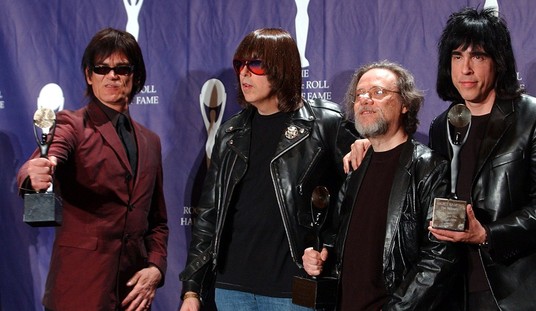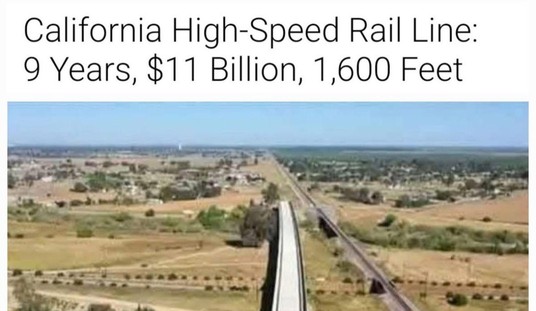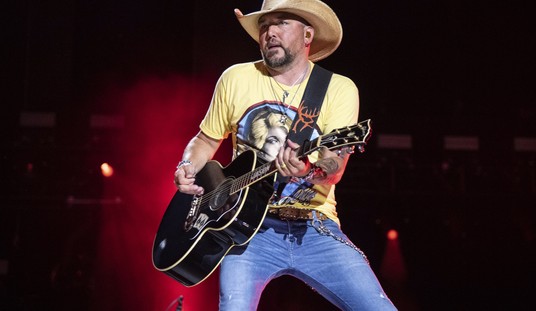Good question. Unfortunately, Volodymyr Zelensky knows the answer to this, and so does the EU — or at least some of its members. Italy’s Mario Draghi appears to be the exception:
Draghi on energy embargo: «Do we want peace or air conditioning?» pic.twitter.com/DWK4YbaJj7
— Maria Tadeo (@mariatad) April 7, 2022
So far the answer seems to be air conditioning, as Reuters notes:
“Some politicians are still unable to decide how to limit the flow of petrodollars and oil euros to Russia so as not to put their own economies at risk,” Zelenskiy said.
Washington announced new measures including sanctions on President Vladimir Putin’s two adult daughters and a major bank. However, the European Union failed to approve a new round of sanctions including on Russian coal on Wednesday. Top EU diplomat Josep Borrell said the package could be passed on Thursday or Friday. …
An EU source said the European coal ban would be approved on Thursday but would not take effect until August, a month later than previously proposed after pressure from Germany, EU’s top importer of Russian coal. read more
Britain also froze Sberbank’s assets, and said it would ban imports of Russian coal, but not until the end of the year.
August? The end of the year? Ukrainian citizens are getting slaughtered in droves now. By August it might be too late, let alone by the end of the year. Not only are these incremental measures insufficient to deter Vladimir Putin, Zelensky argued overnight, the slow pace of that incrementalism might actually be encouraging Putin to continue escalation:
“This package has a spectacular look. But this is not enough.
“It can hardly be called commensurate with the evil that the world saw in Bucha. With the evil that continues in Mariupol, in the shelling of Kharkiv, in Russia’s attempt to launch a new global bloody offensive in Donbas.”
Mr Zelensky called on western leaders to immediately agree on an embargo of Russian oil, complaining that their failure to do so was costing Ukrainians their lives.
“Some politicians are still unable to decide how to limit the flow of petrodollars and oil euros to Russia so as not to put their own economies at risk,” Mr Zelensky added.
“The only question is how many more Ukrainian men, how many more Ukrainian women, the Russian military will have time to kill in order for you, certain politicians – and we know who you are – to find some determination.”
The problem for Zelensky, and indeed for EU leaders as well, is not the present choice but the collective weight of their past choices. The countries of Europe allowed themselves to get addicted to cheap Russian imports of energy rather than produce their own. Perhaps before the Russian invasion of Georgia in 2008, that choice could have been excused, but instead EU leaders accelerated away from domestic production of energy. By 2014, when Russia seized Crimea and destabilized the Donbas, no one in the West should have had any delusions as to Putin’s ultimate aims of Russian empire. And yet Germany in particular but not exclusively kept increasing their reliance on Putin for energy, despite years of warnings from the US about the strategic trap that represented.
That’s been made pretty clear to them now, and Europe’s leaders now seem to want to detox off their Russia addiction. Britain’s talking about an expansion of nuclear power, as is Germany, although the latter still seems to want to buy energy from Russia regardless. France wants to expand its already-impressive nuclear footprint. They are also looking for new import partners, including the US, to replace Putin for energy needs. All of that is well and good, although they’re still not talking about returning to exploration and extraction of their own fossil fuels rather than outsourcing it to Russia, China, and other countries so as not to offend their own delicate climate-change sensibilities.
All of these projects will take a long time to develop, far longer than the end of August or even the end of 2022. In the meantime, as Putin strategized all along, they’re stuck with the choice between air conditioning or peace — or a bit more accurately, a choice between shutting down Russia’s war machine or having hundreds or thousands of deaths from summer heat and winter cold over the next couple of years. How long would those leaders remain leaders when that starts happening — and who would replace them under those circumstances? Likely it would be politicians with a mandate to cut deals with Russia again rather than to stand firm against genocide. That’s something to consider as well.
In the meantime, the rest of the world can take note of what happens when nations allow their strategic supply chains to take root under the control of fundamentally hostile regimes. The US had better learn that quickly when it comes to China.








Join the conversation as a VIP Member